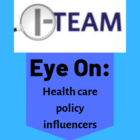The legislative session began with Democratic lawmakers, advocates and state Comptroller Kevin Lembo all confident that a series of long-sought big ticket health care reforms — including a public option for small businesses — were finally within reach.
When the session ended at midnight Wednesday, however, virtually their entire agenda had failed to pass, with several major initiatives dying in the final hours. It was a bitter pill for health care proponents, particularly the death of the public option.
In the end, the state’s powerful insurance and hospital interests proved too big an obstacle to overcome, advocates said. As of May 10, the most recent date for which records are available, the biggest and most powerful among them had spent nearly $3 million on lobbying during the session, including $480,079 by the Connecticut Hospital Association and $191,021 by Yale New Haven Hospital.
“Despite removal of the public option, important reforms to tackle costs and expand coverage remained,” said Frances G. Padilla, president of the Universal Health Care Foundation of Connecticut. “These measures would have made a real difference for many. But they too fell victim to powerful interests.”
Gov. Ned Lamont, whose administration backed most of the big changes sought by Democratic lawmakers, Lembo and others, said Thursday morning at his post-session news conference that he was disappointed by the defeat of most of the reform measures, especially a compromise version of the public option. As a small businessman, he said he understood the skyrocketing costs of providing health insurance to employees.
“Look, I was disappointed,” Lamont said of the demise of the public option. “I thought we put a good bill on the table. If you believe small business is the engine of economic growth, you should have passed a bill that brings down the cost of health insurance for small businesses.”
Lamont blasted Republicans for effectively blocking at the last minute another bill that would have allowed Canadian drug importation and funded a reinsurance program to bring down premiums. It also would have created a process to set cost increase benchmarks for providers, who would have had to explain publicly if they exceeded them.
“That would have brought down the cost of health care for everybody in this state, especially those on the exchanges,” Lamont said. “You’ve got to ask people who talked that bill to death why they did it. Why did they say they didn’t want to bring down the high cost of health care?”
Click here to see which organizations are spending the most on lobbying on health care issues.
But Sen. Kevin Kelly, the ranking Republican on the Public Health Committee, had a different take. He said he supported most of the bill, but objected to the funding mechanism for the reinsurance, which would have been a tax on insurers and others instead of tapping the general fund as he wanted. He said he strongly supported the reinsurance portion — the GOP had introduced a similar bill — but complained Democrats and the governor’s office didn’t bring his party into talks until the very last minute.
“I’m very disappointed,” Kelly said of the governor’s comments regarding the bill.
Approached Wednesday evening at the Capitol, Connecticut Hospital Association’s chief lobbyist Jim Iacobellis declined to state his organization’s position on the bill, which would have had a significant impact on the state’s hospitals.
Kelly blamed the Democrats’ failure to pass their agenda on what he said was their failure to work with Republicans and various stakeholders, rather than on pressure from insurance and health industry lobbyists.
“You want to get everybody’s viewpoint and not be so arrogant that you have all the answers,” he said. “I think that’s what the governor and his party were doing.”
It was the fate of the public option, which would have enabled businesses and entities with 50 or fewer employees to purchase health insurance through the comptroller’s office, that provided some of the session’s most compelling drama. Lembo and Democratic lawmakers, including President Pro Tempore Martin Looney, along with health committee co-chairs Sen. Matt Lesser and Rep. Sean Scanlon, carefully laid the groundwork for the bill through a public hearing and, they said, talks with all stakeholders, including insurers. As of early May, Lembo and Scanlon expressed confidence the measure would get a vote in both chambers and pass, in spite of intense lobbying against it by the Connecticut Business and Industry Association and the Connecticut Association of Health Plans.
Then in late May, Lamont and Democratic leaders unveiled a new and even more ambitious version of the proposal they dubbed the Connecticut Option.
Within days, the proposal crashed and burned after Cigna informed Lamont and lawmakers of its vehement opposition to the bill. Cigna, which does not sell in Connecticut the type of insurance that would have competed with the public option, threatened, according to Lembo, to move its headquarters from Connecticut if the bill passed. Lesser said Deb Hutton, a Cigna senior director of government affairs, made it clear the firm would consider relocating if the measure became law.
In a statement, Cigna denied the threat was made. “To clarify, we never said that we would leave the state,” spokeswoman Elinor Pollack wrote in an email.
The company opposed the proposal because it threatened the “the long-term viability and vitality of the state,” she wrote. “Bottom line: The proposal as designed is ill-conceived and simply will not work.”
Asked Wednesday what had happened. Lamont simply he had spoken to Cigna CEO David Cordani about the proposal, but did not elaborate.
But House Speaker Joe Arsenowicz said at his post-session press conference Thursday that he and his fellow Democrats are not giving up.
“Overall, the public option — that was always my goal — we didn’t get there,” Arsenowicz said. “[Connecticut] being the home of insurance companies, I know, makes it more difficult. Hopefully we’ll continue these conversations in the off season and give it another try.”
